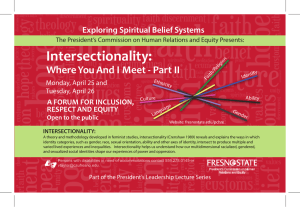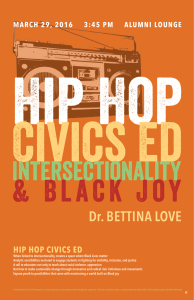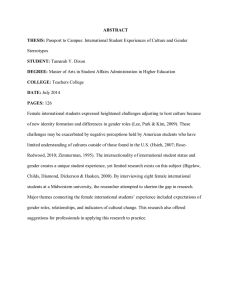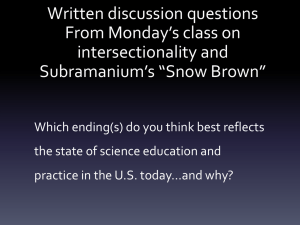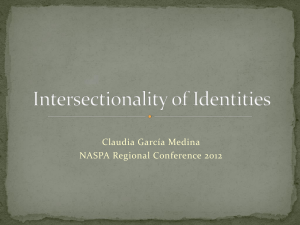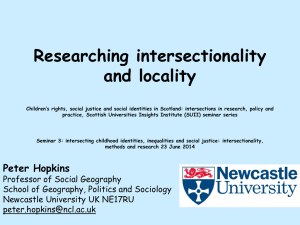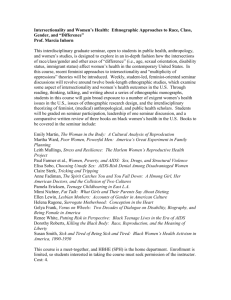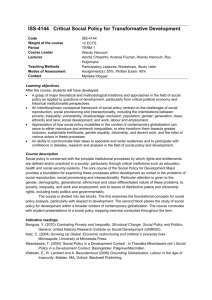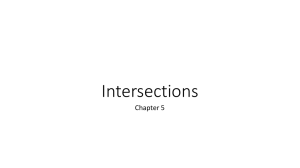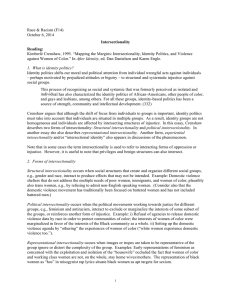1 - Ball State University
advertisement
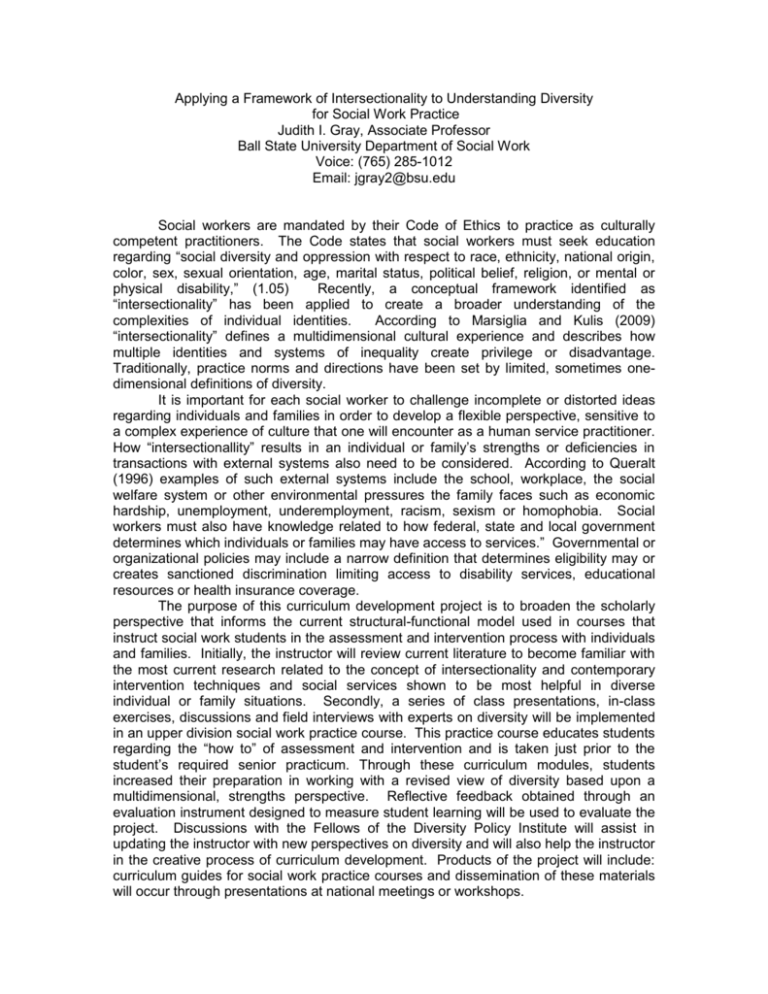
Applying a Framework of Intersectionality to Understanding Diversity for Social Work Practice Judith I. Gray, Associate Professor Ball State University Department of Social Work Voice: (765) 285-1012 Email: jgray2@bsu.edu Social workers are mandated by their Code of Ethics to practice as culturally competent practitioners. The Code states that social workers must seek education regarding “social diversity and oppression with respect to race, ethnicity, national origin, color, sex, sexual orientation, age, marital status, political belief, religion, or mental or physical disability,” (1.05) Recently, a conceptual framework identified as “intersectionality” has been applied to create a broader understanding of the complexities of individual identities. According to Marsiglia and Kulis (2009) “intersectionality” defines a multidimensional cultural experience and describes how multiple identities and systems of inequality create privilege or disadvantage. Traditionally, practice norms and directions have been set by limited, sometimes onedimensional definitions of diversity. It is important for each social worker to challenge incomplete or distorted ideas regarding individuals and families in order to develop a flexible perspective, sensitive to a complex experience of culture that one will encounter as a human service practitioner. How “intersectionallity” results in an individual or family’s strengths or deficiencies in transactions with external systems also need to be considered. According to Queralt (1996) examples of such external systems include the school, workplace, the social welfare system or other environmental pressures the family faces such as economic hardship, unemployment, underemployment, racism, sexism or homophobia. Social workers must also have knowledge related to how federal, state and local government determines which individuals or families may have access to services.” Governmental or organizational policies may include a narrow definition that determines eligibility may or creates sanctioned discrimination limiting access to disability services, educational resources or health insurance coverage. The purpose of this curriculum development project is to broaden the scholarly perspective that informs the current structural-functional model used in courses that instruct social work students in the assessment and intervention process with individuals and families. Initially, the instructor will review current literature to become familiar with the most current research related to the concept of intersectionality and contemporary intervention techniques and social services shown to be most helpful in diverse individual or family situations. Secondly, a series of class presentations, in-class exercises, discussions and field interviews with experts on diversity will be implemented in an upper division social work practice course. This practice course educates students regarding the “how to” of assessment and intervention and is taken just prior to the student’s required senior practicum. Through these curriculum modules, students increased their preparation in working with a revised view of diversity based upon a multidimensional, strengths perspective. Reflective feedback obtained through an evaluation instrument designed to measure student learning will be used to evaluate the project. Discussions with the Fellows of the Diversity Policy Institute will assist in updating the instructor with new perspectives on diversity and will also help the instructor in the creative process of curriculum development. Products of the project will include: curriculum guides for social work practice courses and dissemination of these materials will occur through presentations at national meetings or workshops. References Marsiglia, F. F., and Kulis, S. (2009). Culturally grounded social work Diversity, oppression and change. Chicago, IL., Lyceum Books, Inc. National Association of Social Workers (2009). The code of ethics. Washington, DC: NASW Press. Queralt, M. (1996). The social environment and human behavior: A diversity perspective. Needham Heights, MA: Allyn & Bacon.
